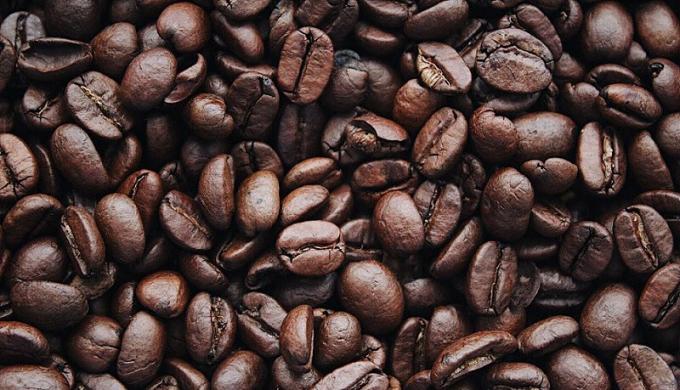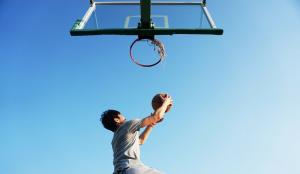Does caffeine help when doing sports?
Caffeine is the best known, cheapest and most accessible substance to improve both physical and mental performance. Almost everyone consumes some amount of caffeine daily. This substance is found mainly in coffee, but also in beverages known as cola and in products such as chocolate.
Although the intake of caffeine that we do on a regular basis does not affect when we do sport, the use of this substance in a strategic way can improve performance in a significant. The amount of caffeine theoretically needed to increase athletic performance is equivalent to several cups of coffee. Because it is a daily consumer product, it is not considered a doping substance.
A single dose of caffeine can greatly improve overall athletic performance, increase concentration and help burn fat. In this article we explain the effects of caffeine and how it can help us do sports.
- Related article: "Types of Neurotransmitters: Functions and Classification"
How does caffeine affect our body?
Caffeine intake produces immediate effects on the body.
These changes in the body begin to be noticed between 5 and 30 minutes after taking and include increased heart and breathing rates, which are accompanied by increased mental alertness and a sense of physical vigor.Caffeine enters the bloodstream rapidly, and the highest levels can be detected 30 minutes to two hours after consumption. After 3 to 4 hours, the levels of caffeine in the blood begin to decrease.

Unlike most sports substances and supplements, caffeine affects almost every cell in the body, it is also a known antagonist of a nucleotide neurotransmitter. Most cells in our body have receptors for caffeine or the products it stimulates, including cells in nerve, muscle, and adipose tissue. Essential cells for the correct functioning of the metabolism during sports practice.
Due to its ubiquity, caffeine can produce a number of different effects in the body, including the following.
1. The nervious system
By activating sections of the brain and nervous system, caffeine reduces fatigue and improves concentration. Caffeine increases epinephrine, known as adrenaline (an activating neurotransmitter), which activates the body's fight or flight mechanisms: increases heart rate, opens airways, stimulates production of energy. In short, it prepares our body to perform.
- You may be interested: "Parts of the Nervous System: functions and anatomical structures"
2. fats
Caffeine increases the capacity of our body to break down stored triglycerides in fat cells through lipolysis.
3. endorphins
Caffeine has an antidepressant effect, this is because it generates a kind of endorphins, beta-endorphins. After exercising, many people experience a high due to endorphins. These endorphins are released by the body and cause a positive state of mind.
- Related article: "Endorphins (neurotransmitters): functions and characteristics"
4. muscles
The exact mechanisms of how caffeine improves muscle performance are unclear, but it is believed to activate the central nervous system. East controls and coordinates muscles allowing greater activation.
5. Temperature
Caffeine increases heat production through thermogenesis. This raises your body temperature and can help you burn more calories.
6. Glycogen replenishment
The synthesis of glycogen after exercise is, without a doubt, the main variable in the recovery of the athlete, it is also one of the limiting factors of performance in long-distance sports. Caffeine increases fat burning, which can help improve glycogen replenishment. Also, the intake of caffeine together with carbohydrates after the practice of intense exercise, allows a better recovery of muscle glycogen.
- You may be interested: "Basal metabolism: what it is, how it is measured and why it allows us to survive"
How does caffeine improve sports performance?
As we have seen, caffeine produces a series of effects that can improve athletic performance: it increases concentration and awareness and decreases fatigue. Caffeine supplements have been shown to increase the distance that runners and cyclists can cover before exhaustion. It is estimated that the increase in performance in athletes is up to four percent. This includes professional and casual athletes.
Caffeine has been shown to be beneficial for both long-term endurance activities, as it aids in glycogen replenishment; as well as for explosive and high-intensity efforts, which also benefit from the stimulation of the muscles and the activation of the nervous system. These activities include sprints, cycling races, marathons, among many other activities..
Next, we detail how caffeine specifically improves performance in different types of sports.
1. Caffeine and endurance sports
To improve performance during exercise, many athletes take caffeine supplements, the High-endurance athletes who ingest caffeine or coffee see a significant increase in their capabilities: regular consumption of these substances can significantly improve endurance sports performance.
Both caffeinated coffee and caffeine produce similar benefits in prolonged physical activity. This is due to the naturally high levels of caffeine in coffee.
Caffeine improves endurance performance depending on how it is metabolized. Certain genetic variations can affect this process, and some research suggests this may determine how much of an enhancement caffeine provides.
Different investigations support that caffeine consumption improves the performance of all athletes. A study conducted with professional athletes measured the time it took them to complete a time trial. The athletes were given different amounts of caffeine: a placebo, 2 or 4 mg of caffeine per kilogram of body weight. Then they repeated the same test.
The study showed that increased caffeine consumption improved performance in all athletes. Nevertheless, specific genetic variation increased resistance. This is because carriers of the mutation experience greater benefits when consuming higher doses.
- Related article: "The 3 most important psychological effects of caffeine"
2. Caffeine and high intensity sports
Caffeine provides benefits to athletes trained in high-intensity sports such as swimming and cycling. That's good, high-intensity exercises require a large amount of caffeine.
Some studies show conflicting results on the effects of caffeine on high-intensity exercise. Beginners and untrained people receive less benefit from caffeine compared to trained athletes.
According to a successful study, participants felt less tired and were able to complete a longer cycling distance, after consuming a dose of 4 mg of caffeine per kilogram of body weightl. This is equivalent to about 4 cups of coffee or 10 cans of cola.
Another study found that people who were not trained or who did not play sports regularly did not experienced better sprinting performance when given doses of up to 300 mg of caffeine.
3. Caffeine and strength exercise
There are conflicting studies on the effect caffeine has on strength and power exercise performance. While some results indicate that caffeine helps performance, others do not show any improvement in sports practice. Research on the use of caffeine is still ongoing: the effects of caffeine in strength sports are not yet confirmed.
Multiple studies have shown the positive effects of caffeine consumption from the evidence. For example, one study looked at 12 participants lifting weights after taking either a placebo or a small amount of caffeine. The results showed that participants were able to lift more weight after taking caffeine compared to a placebo.
However, a study looking at whether the muscle strength of regular coffee drinkers increased when they consumed a dose caffeine, found no significant difference between participants who ingested caffeine and those who took a placebo.
In conclusion, more research is needed to show that caffeine has a positive impact on the practice of strength-related sports activities. Still, evidence indicates that caffeine intake might be helpful.
4. caffeine and fat loss
Weight loss supplements often contain caffeine as an ingredient. Caffeine helps release stored fat before and near the end of a workout. The effect of caffeine refers to its ability to make adipocytes (fat cells) break down fat, increase internal body heat and oxidation capacity.
According to the studies, drinking caffeine before exercise can greatly increase the release of stored fat in the body. This effect is especially significant in untrained or sedentary people. Although, caffeine by itself does not appear to cause significant weight loss, based on the available evidence.


